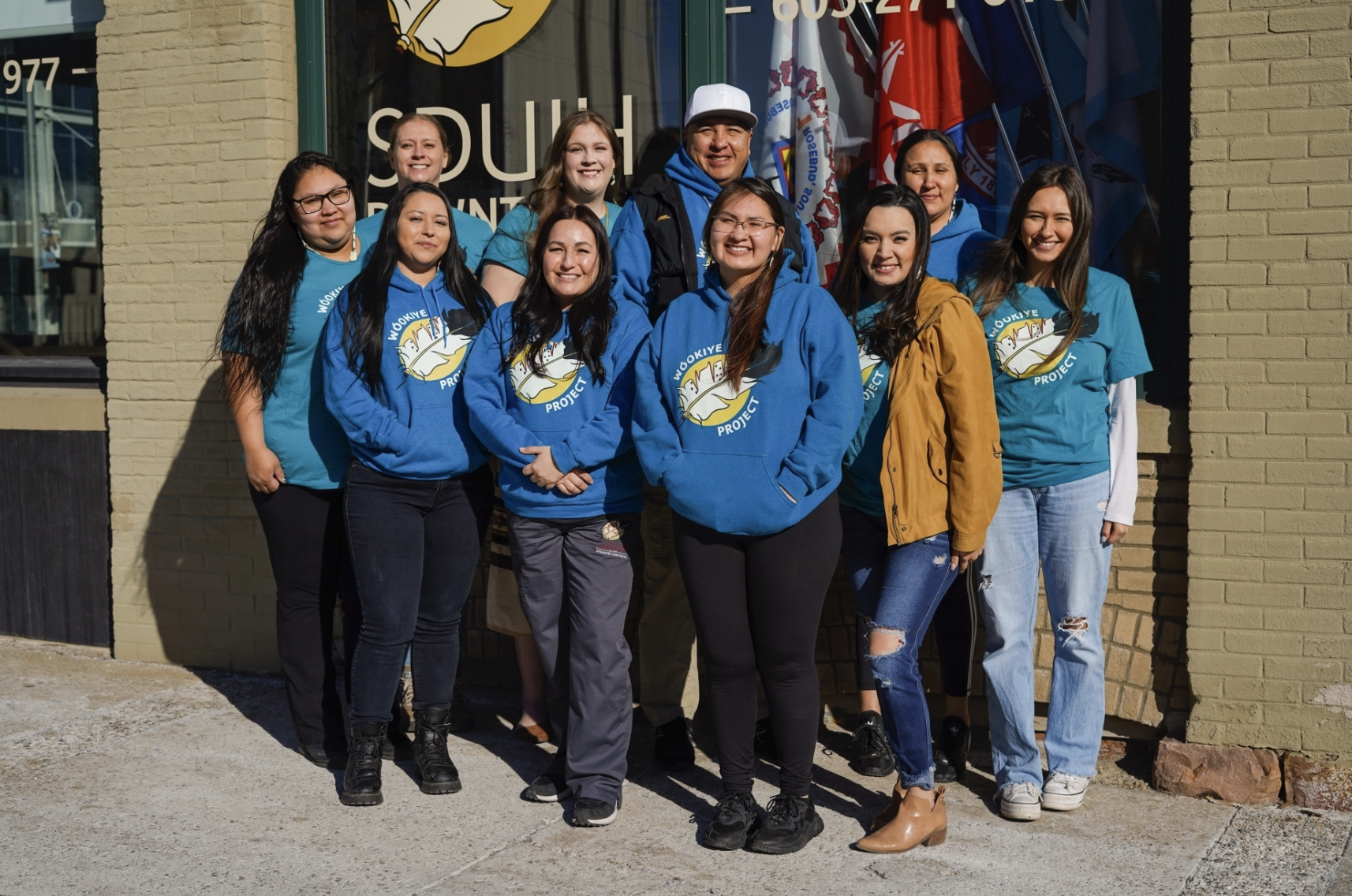Simplified: The Wo'okiye Project, a culturally responsive street outreach program from South Dakota Urban Indian Health (SDUIH) has helped dozens of unhoused people find everything from housing to addiction support to medical appointments to connection with family.
Why it matters
- In August, the Sioux Falls City Council gave $175,000 to SDUIH as part of a recommendation from a homelessness task force early last year. The goal of that money was to provide a proactive approach to helping folks without homes.
- Since then, the team at SDUIH has done nearly 1,300 hours of direct outreach in the city, successfully found housing for 20 people and helped dozens of people connect with mental health, substance abuse or chemical dependency counseling, according to data presented to City Council Tuesday by SDUIH CEO Michaela Seiber.
- The biggest lessons the Wo'okiye Project team has learned in the last six months is that supporting people without homes takes a lot of time and a lot of trust-building.
"We've seen the barriers, and we're really trying to jump over those barriers with them," Seiber said. "It's really time consuming, but one by one, we're getting it done."
Tell me more
The ultimate goal of the project is to provide wraparound services to unhoused people grounded in Indigenous values, Seiber said.
- The project is largely led by Native American people focused on helping their relatives in a way that recognizes and respects the nuances of Native American culture.
In practice, it looks like people out on the streets providing direct outreach to those who need it.
"We drive down the street in our vehicles, and they just run to us," Seiber said. "They want to talk to us and say, 'hey I need my medication refilled,' and, 'can you take me to my therapy appointment tomorrow?' It's really, really empowering."
So, how's it going?
Here's a quick look at some stats from the last six months:
- 20 people have been placed in housing,
- 44 identification documents obtained,
- 33 medical appointments,
- 36 people enrolled in counseling,
- 17 people handed off to The Link triage center,
- 2 successful work placements.
Overall, Seiber said it's all about supporting and not enabling.
Any good success stories?
Seiber shared the example of a man who was wheelchair bound, elderly and living in the streets for multiple years.
- This man had been banned from the shelters, was frequently on street corners asking for money and, subsequently in jail for failure to vacate.
Within one month, the SDUIH team had connected the man with medical appointments in their clinic, and ultimately helped him get into a tribal nursing home where he can receive long-term care.


